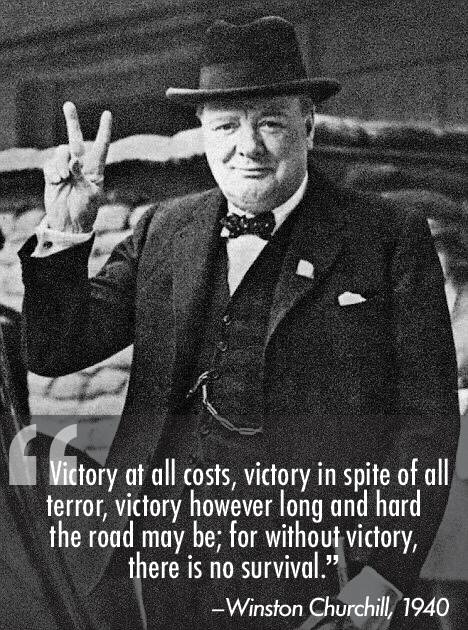Editor’s note: This is a guest post by “Blackiswhite Imperial Consigliere”, a blogger, and a friend of Victory Girls. His rebuttal is in response to this post by Dejah, “The Paradox of Organized Christianity…“.
In Defense of Organized Religion
Before I get started, I would like first to thank my gracious hosts here at Victory Girls. I always enjoy reading the work that is posted here, even on the occasions when I disagree with some or all of the conclusions stated. I didn’t lightly ask for the opportunity to rebut Dejah Thoris’ post here, and in fact, I could have posted this response at several other blogs, but it still wouldn’t have exposed the same audience to an opposing viewpoint.
My own life not included, there is one thing that all religions, especially Christian monotheism seem to have a problem with, and it needs a Reformation to fix it….
I take an exception to this, based on the main thrust of this piece. First, because of the use of the term “Christian monotheism”, prompts me to ask “Is there any other kind?”, and second, because Buddhists largely take a “You do your thing, and I’ll do mine” approach to things, thus invalidating the premise as stated.
Christianity has WAAAAAYYYYY to many people who are worried about what other believers and nonbelievers are doing with each other behind closed doors.
Well, the obvious response is “What you’re talking about doesn’t stay behind closed doors.” But then you knew that…or should have known it.
This is an example of “judge not, lest ye be judged.”
I’m actually glad that you bring the judging thing up, because many Christians allow themselves to be silenced by people who never bothered to read all the verses, or by those who ( often correctly) hope that many Christians haven’t. That said, I agree with your conclusion that it was absolutely the wrong way to handle it, because of Luke 10:6-8 and 1 Timothy 5:18, if for no other reason.
I prefer my Christianity with quite a bit less window peeping from Blanche from the church choir or sermonizing about the evils of drink and fornication. I do believe in some judging, but many times, those of us with a Godly bent have the balance way off on the judging versus not judging scale.
[This is actually a quote from another piece I have written] This is where things have gotten out of hand with too much of Christendom today, because of a conscious decision to embrace the ignorance of non-believers. We let those who do not walk in the faith and who are not filled with the Holy Spirit selectively read our scripture, and stop before they reach the part that changes the meaning of the point they want to make. Consequently, when we dare to call sin by its name and mark it for what it is, we often have Matthew 7:1-5 tossed back in our faces.“Judge not, that you be not judged. 2 For with what judgment you judge, you will be judged; and with the measure you use, it will be measured back to you. 3 And why do you look at the speck in your brother’s eye, but do not consider the plank in your own eye? 4 Or how can you say to your brother, ‘Let me remove the speck from your eye’; and look, a plank is in your own eye? 5 Hypocrite! First remove the plank from your own eye, and then you will see clearly to remove the speck from your brother’s eye.
But this leaves off the final verse of the passage, verse 6.
6 “Do not give what is holy to the dogs; nor cast your pearls before swine, lest they trample them under their feet, and turn and tear you in pieces.
It doesn’t exactly square with the idea that Christians aren’t supposed to judge, does it? But it does imply that there is an expectation of judgment. Still, occasionally I encounter such a person with the presence of mind to avoid this and instead quote Luke 6:37-42.
37 “Judge not, and you shall not be judged. Condemn not, and you shall not be condemned. Forgive, and you will be forgiven. 38 Give, and it will be given to you: good measure, pressed down, shaken together, and running over will be put into your bosom. For with the same measure that you use, it will be measured back to you.”
39 And He spoke a parable to them: “Can the blind lead the blind? Will they not both fall into the ditch? 40 A disciple is not above his teacher, but everyone who is perfectly trained will be like his teacher. 41 And why do you look at the speck in your brother’s eye, but do not perceive the plank in your own eye? 42 Or how can you say to your brother, ‘Brother, let me remove the speck that is in your eye,’ when you yourself do not see the plank that is in your own eye? Hypocrite! First remove the plank from your own eye, and then you will see clearly to remove the speck that is in your brother’s eye.
At first blush, it also apparently forbids judging. But, as with the previous verses, the last one is key, as it clearly contemplates judgment…you couldn’t remove the plank from your brother’s eye without it. But, if you read both passages carefully, what is required is that the judge must first look upon themselves with honest reflection, and address their own foibles before looking upon those of others and addressing them. This is borne out in John 7:24.
“Do not judge according to appearance, but judge with righteous judgment.”
This was Christ addressing the Pharisees who were condemning him for being about his Father’s work on the Sabbath. He didn’t tell them not to judge; he told them to judge with a discerning judgment. This either escapes the notice of, or is purposely omitted by those who believe themselves worthy to preach to us. And either out of ignorance, or fear of not being “liked”, we let them. Because of this failure in ourselves, we fail to meet our calling to be salt, which is both an irritant, and a preservative, and we fail in our calling to be light, because our desire to not offend means that we will not speak the truth to those in bondage to sin, instead opting to let them believe that they are not in an immortal peril, allowing their chains to drag them to a second death when they leave this world. [End quote from the Joel’s Prophecy post “Salt Good For Nothing…”]
And as for the window peeping, I certainly agree that there is a line that no one, least of all myself feels comfortable in having crossed, but I also keep two things in mind when I think of such things. The first is that believers have a sense of shame because they should (meaning they don’t have an excuse) believe in concepts such as right and wrong, and this knowledge means that we’re more likely to try to keep our stumbles, failures, and trespasses private. God isn’t blind to these acts, and the Bible is very clear that such actions have consequences. (2 Samuel, Chapter 12 is pretty clear about both of these points.) It is a selfish person who haughtily presumes that their actions will be free of consequences for others…a fact true of both excessive drink and reckless fornication. It is even worse to presume that there are not consequences for the society in which you live, a fact that isn’t always brought into focus unless someone asks whether the license (not liberty) being promoted helps or harms society, which more often than not cannot be addressed honestly because of the fear of offending others, or the outrage that will inevitably be claimed.










Recent Comments